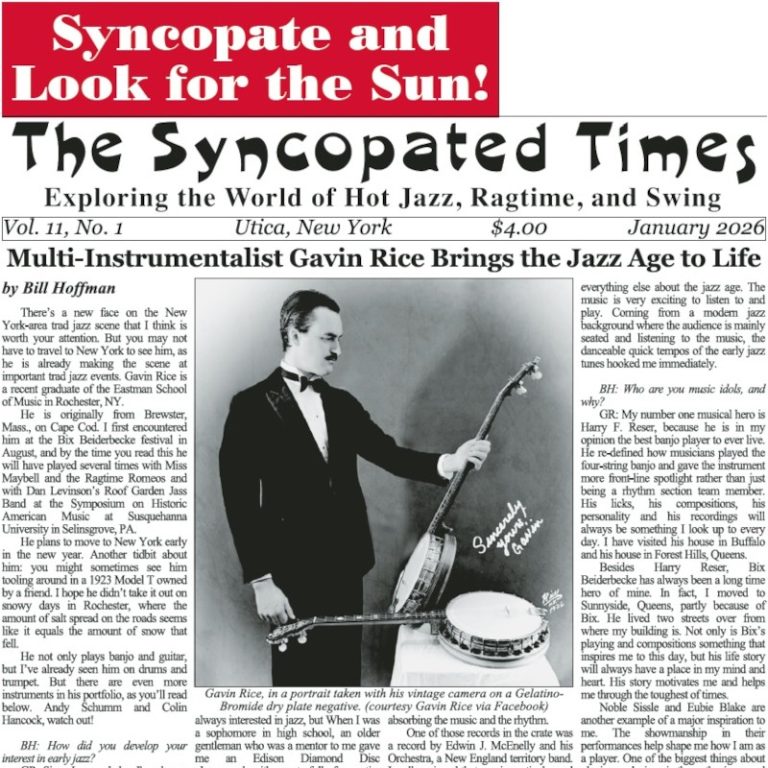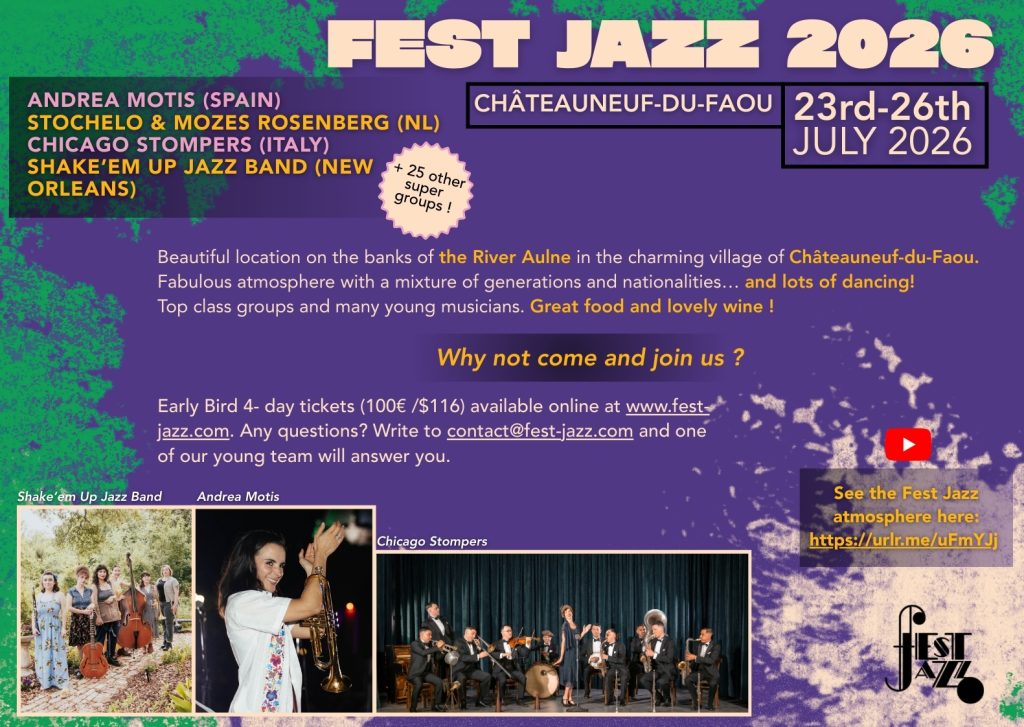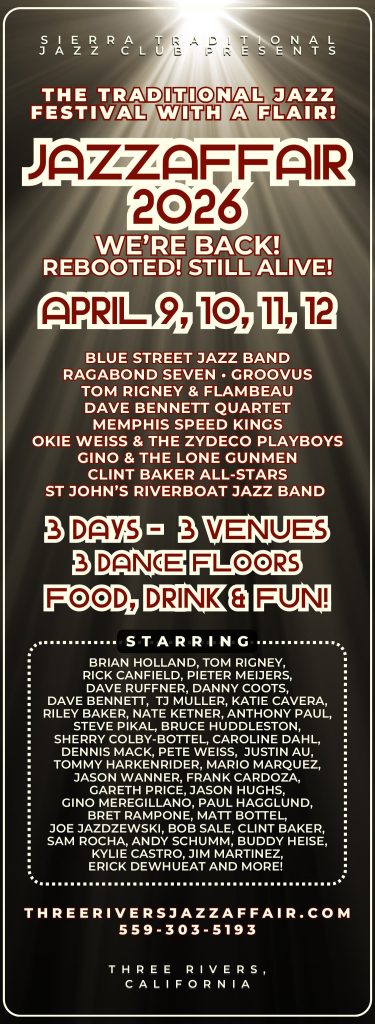A Gypsy Jazz Renaissance
There is a subculture bubbling away on the underbelly of London’s world revered jazz scene. Despite being a century old, the uniquely European style of jazz affectionately known as ‘Gypsy Jazz’ is seeing its second renaissance and London is a hub for the fresh new sound. I talked to some of the local musicians taking part in the Gypsy Jazz Festival of London. In the first week of May some of the world’s best, most cutting-edge Gypsy Jazz musicians converge on the big smoke for a celebration of Gypsy Jazz and its adjacent musical styles. Building on the considerable success of last year’s edition, this year features Olli Soikkeli (from Finland, via New York’s Modern Jazz scene), Fapy Lafertin (living legend), Tim Kliphuis (Jazz violin pioneer), Julien Cattiaux (Rhythm guitar master) and a host of top British musicians, at prestigious venues across the city.
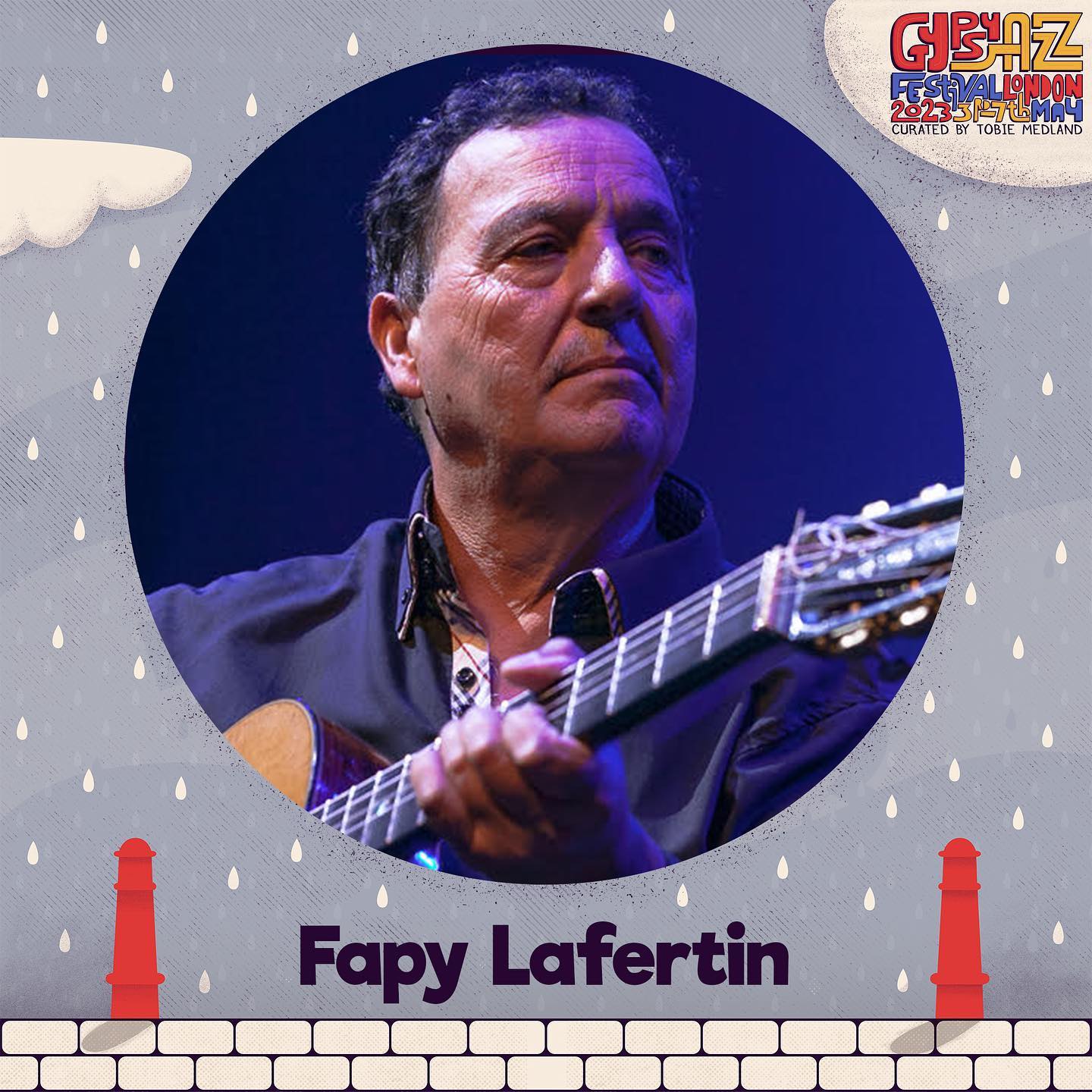 Dave Kelbie is one of the world’s most prominent promoters of Gypsy Jazz, Early Jazz, and Swing. Dave is an accomplished Rhythm guitarist and has toured with many of the most well-respected figures in these styles. Dave is accompanying Fapy Lafertin at the home of the London Symphony Orchestra, ‘LSO St Luke’s’, on Friday 5th May. He notes how the scene in the UK has been around for a while, but that there has been a recent surge in popularity – especially amongst young musicians: “Despite falling through the cracks of the categorising UK music press for as long as I can remember…not Jazz, World Music, Folk or contemporary…and despite not having a resident Lafertin, Debarre, Rosenberg, Lagrene, the scene here seems to have stubbornly remained popular with audiences, and recently has reached a really accomplished level in young players.”
Dave Kelbie is one of the world’s most prominent promoters of Gypsy Jazz, Early Jazz, and Swing. Dave is an accomplished Rhythm guitarist and has toured with many of the most well-respected figures in these styles. Dave is accompanying Fapy Lafertin at the home of the London Symphony Orchestra, ‘LSO St Luke’s’, on Friday 5th May. He notes how the scene in the UK has been around for a while, but that there has been a recent surge in popularity – especially amongst young musicians: “Despite falling through the cracks of the categorising UK music press for as long as I can remember…not Jazz, World Music, Folk or contemporary…and despite not having a resident Lafertin, Debarre, Rosenberg, Lagrene, the scene here seems to have stubbornly remained popular with audiences, and recently has reached a really accomplished level in young players.”
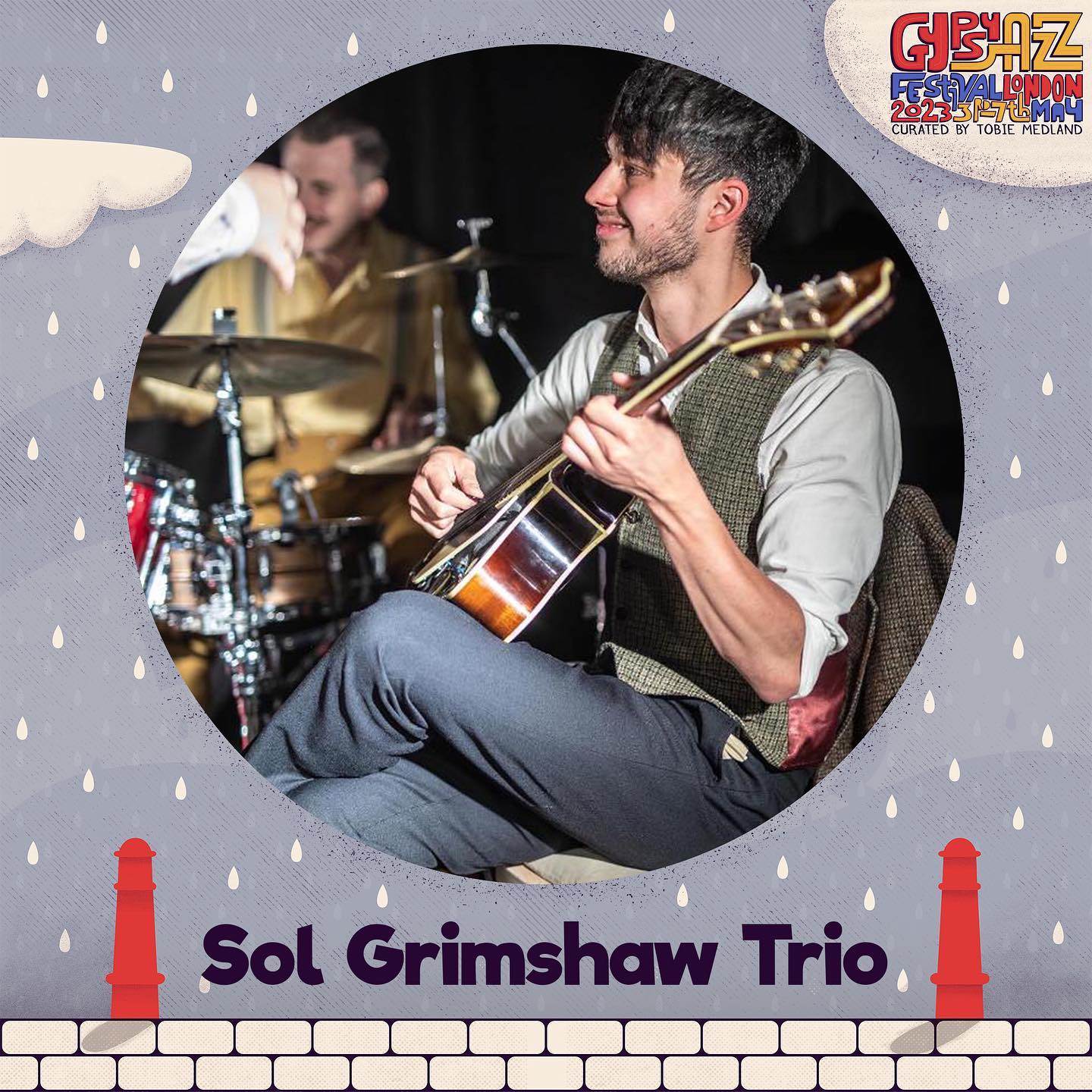 Sol Grimshaw is a young upstart from the Isle of Wight and a torchbearer for the younger generation. Sol is hosting the late-night jam session at ‘The Jago’ in Dalston on Saturday 6th May. He had this to say about his experience of being welcomed into the blossoming London scene: “Since moving to London in 2019, I have immersed myself in the Gypsy Jazz scene here. Through the scene I have met some of the most inspirational musicians. By getting to know them, and playing alongside them, their energy and enthusiasm for Gypsy Jazz has instilled in me a real passion for this music.”
Sol Grimshaw is a young upstart from the Isle of Wight and a torchbearer for the younger generation. Sol is hosting the late-night jam session at ‘The Jago’ in Dalston on Saturday 6th May. He had this to say about his experience of being welcomed into the blossoming London scene: “Since moving to London in 2019, I have immersed myself in the Gypsy Jazz scene here. Through the scene I have met some of the most inspirational musicians. By getting to know them, and playing alongside them, their energy and enthusiasm for Gypsy Jazz has instilled in me a real passion for this music.”
Gypsy Jazz has had a varied past. From the inception of the style, pioneered by Django Reinhardt, to the 1980’s resurgence, led largely by the festivals headliner Fapy Lafertin. Now days the players combine influences of Modern Jazz, Hot Swing, and their own innovations. The style still very much has its roots firmly in the traditional music of the Gypsies of central and eastern Europe. Lucy Tasker is clarinettist in the traditional Balkan music band ‘RAKA’. They are playing on the Saturday night at The Jago. She is also closely involved with the Gypsy Jazz scene.
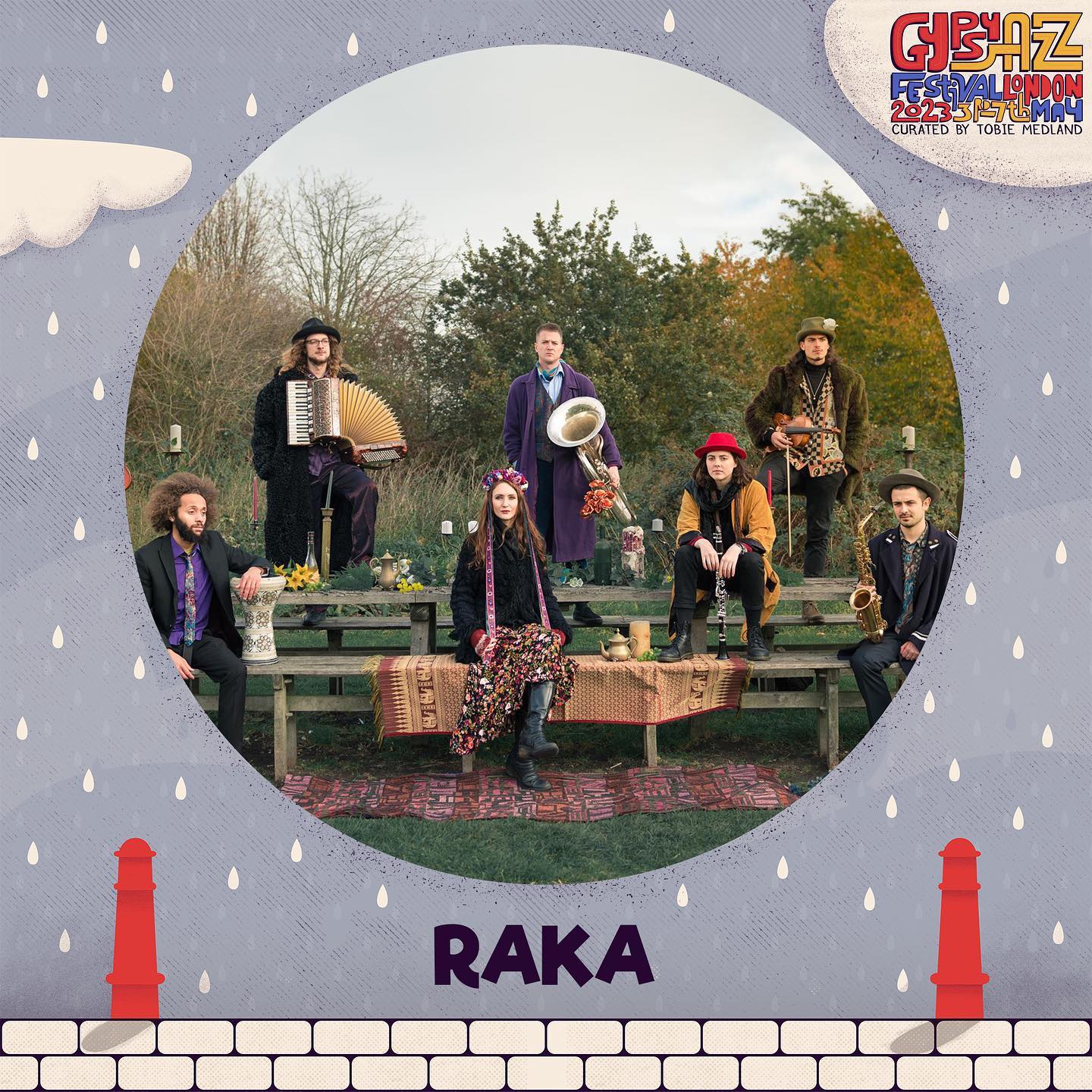 Lucy says, of the UK scene: “The Gypsy Jazz scene in London is evolving in an exciting and innovative fashion. Through the lens of the GJFL, we see both authentic and innovative expressions of Gypsy Jazz, as well as a reframing of this iconic style of music within a wider historical and cultural context. I always love playing Gypsy Jazz in London. I like the fact that no one needs mics or amplifiers, and that you can just turn up in a cosy pub in a hidden corner of a London street, and play a few tunes with some friendly faces. The festival is also doing an excellent job promoting diversity and inclusivity within this genre, and where’s best to sow this seed than the multicultural and diverse city of London?”
Lucy says, of the UK scene: “The Gypsy Jazz scene in London is evolving in an exciting and innovative fashion. Through the lens of the GJFL, we see both authentic and innovative expressions of Gypsy Jazz, as well as a reframing of this iconic style of music within a wider historical and cultural context. I always love playing Gypsy Jazz in London. I like the fact that no one needs mics or amplifiers, and that you can just turn up in a cosy pub in a hidden corner of a London street, and play a few tunes with some friendly faces. The festival is also doing an excellent job promoting diversity and inclusivity within this genre, and where’s best to sow this seed than the multicultural and diverse city of London?”
The Gypsy Jazz Festival of London is run with the help of a generous grant from England’s Arts Council. The festival aims to give a platform not just to established heavyweights of the style, but to the emerging musicians who are forging the way for the new wave of collaboration and innovation spreading across the country. Andrea Vergani, a key member of the festival organising team, as well as band leader for the prolific ‘SwingTrain 42’ trio, thinks that: “It’s very exciting being part of the UK scene. What I have witnessed recently is the beginnings of collaborations between local players and musicians in France, Italy, you name it. Musicians are visiting each other and playing at each other’s concerts, which is opening a totally new frontier for us UK players! On top of this, many musicians have started writing original material, shaping a new eclectic sound that will certainly help define the future of UK Gypsy Jazz!”
Find more information about the festival on their event page or on Facebook.
Tobie Medland is director of the Gypsy Jazz Festival of London (3rd-7th May 2023). Tobie is an active violinist on the British jazz circuit and is label boss of ‘Future Fable Records.’

